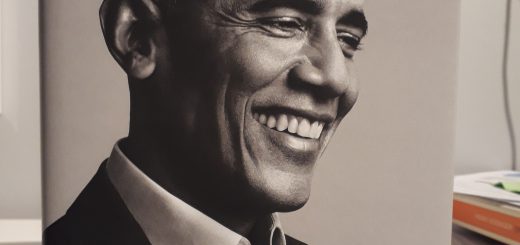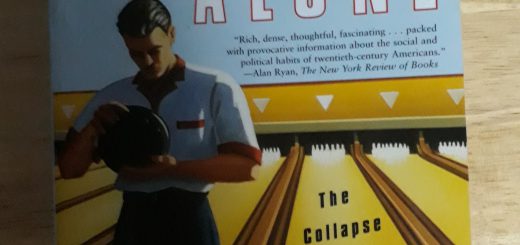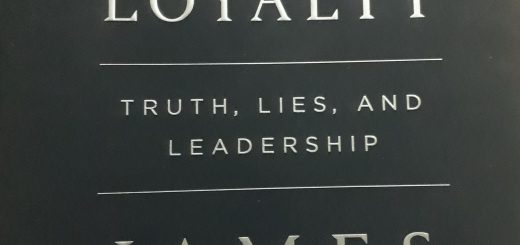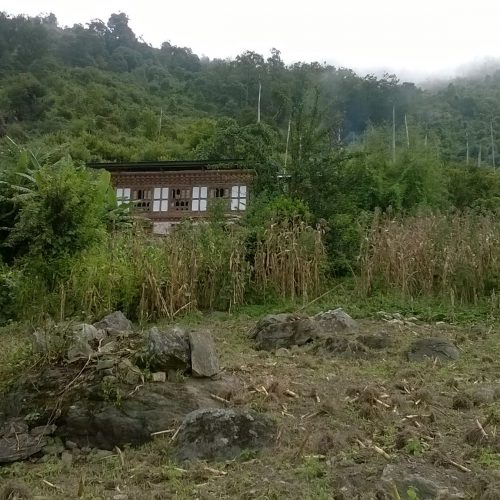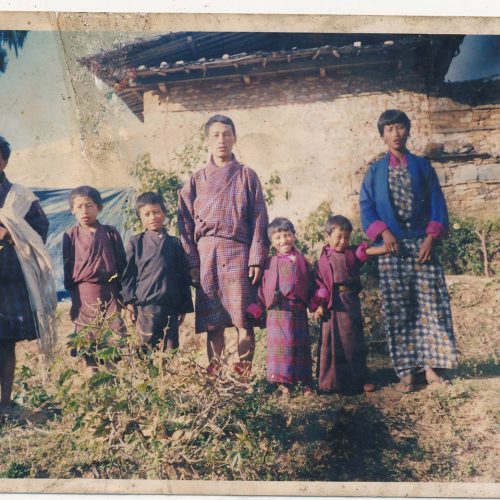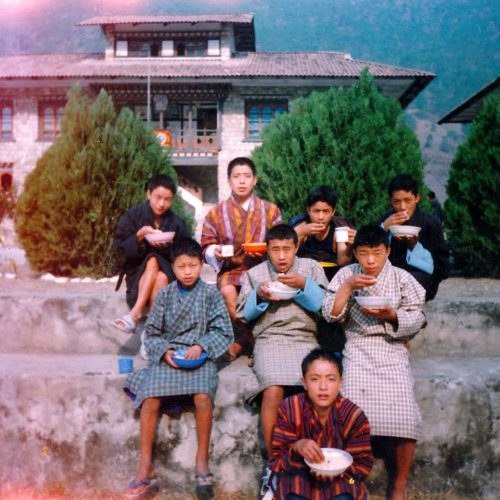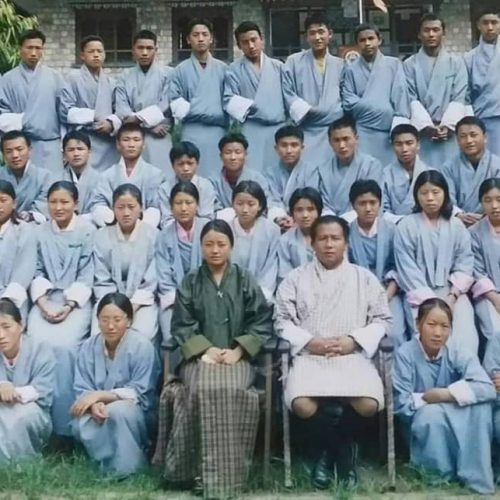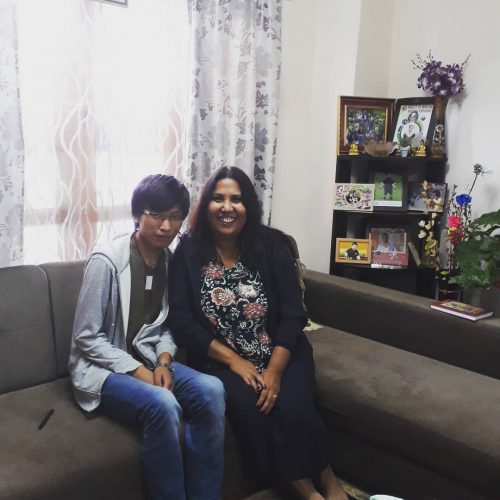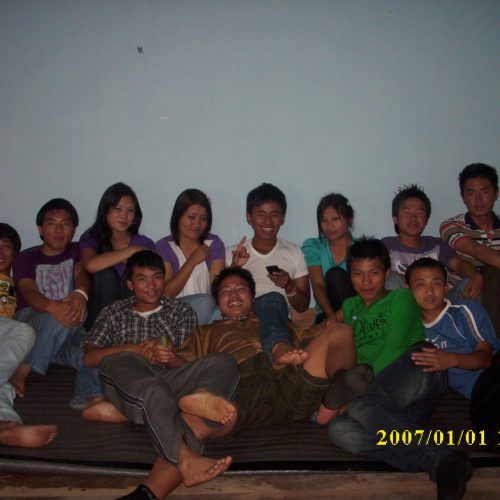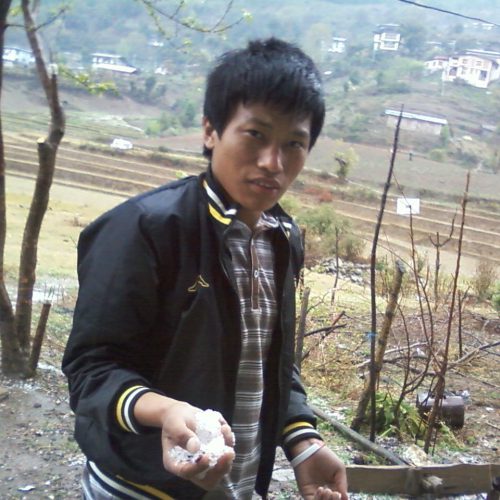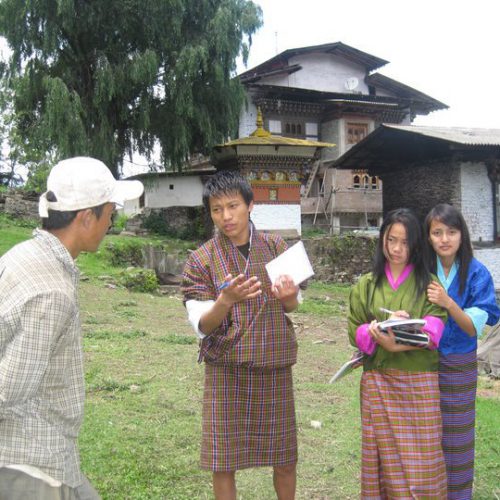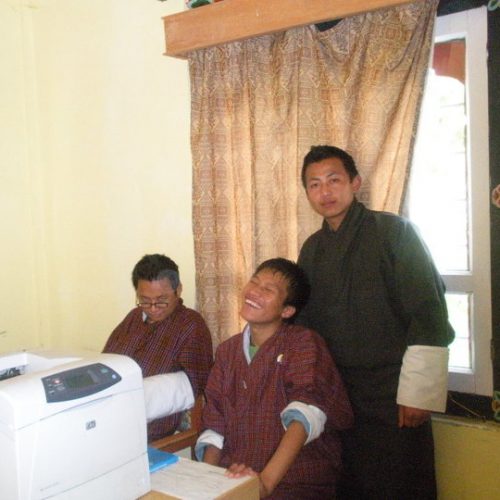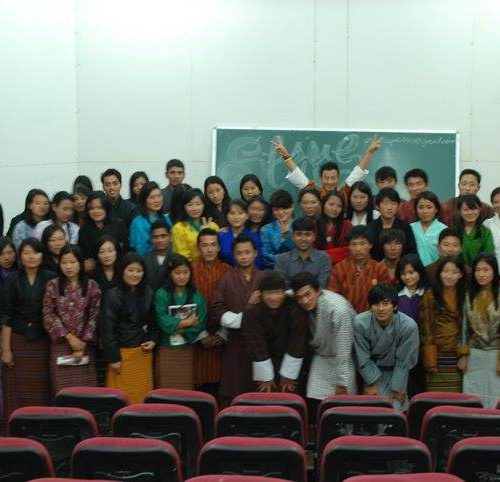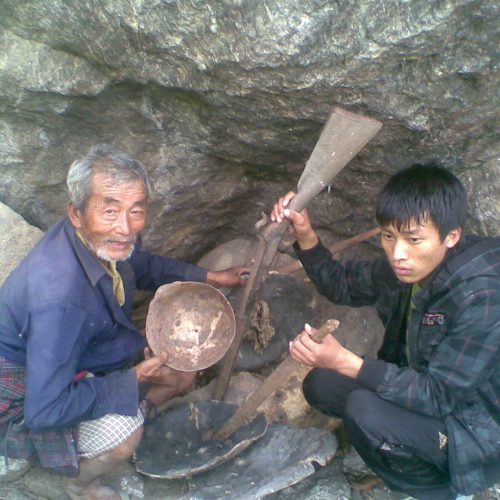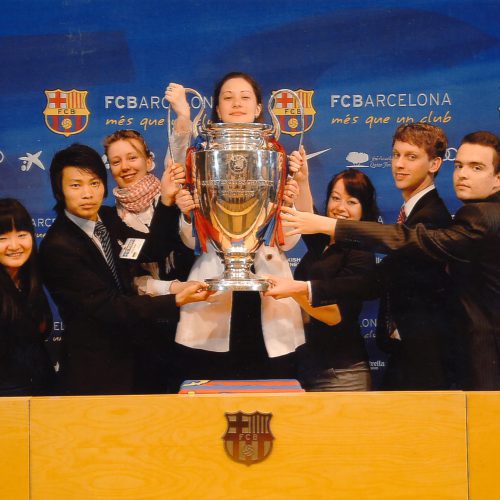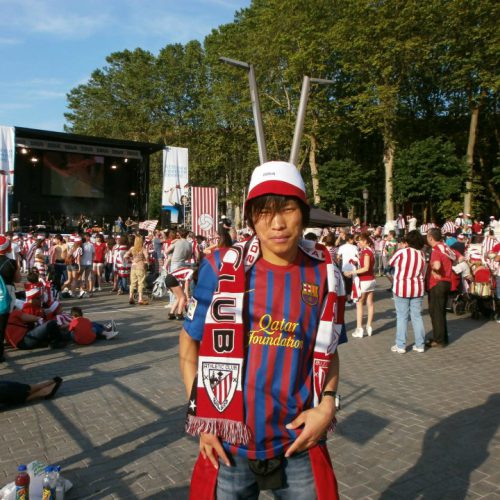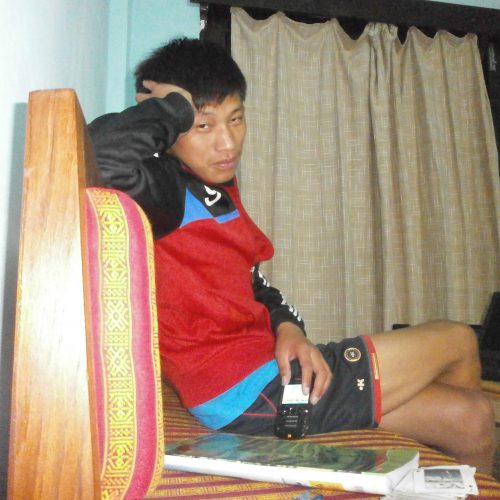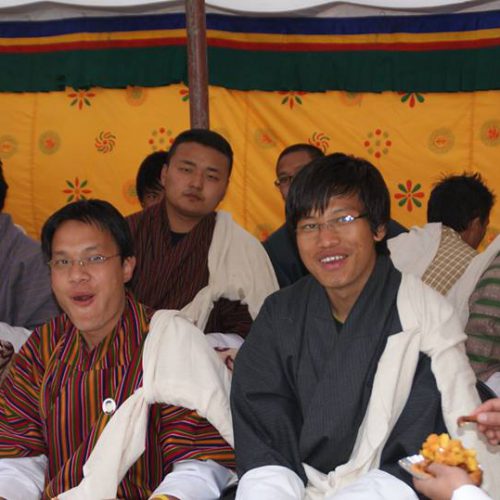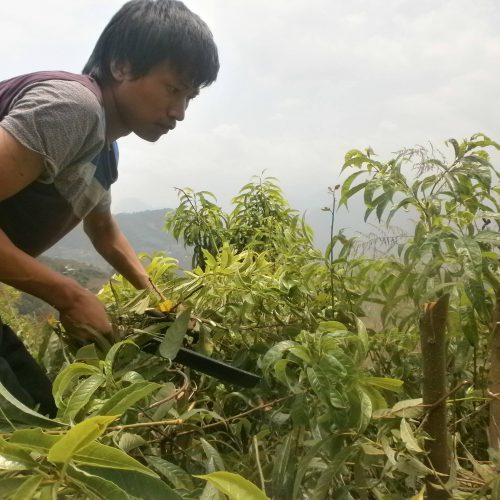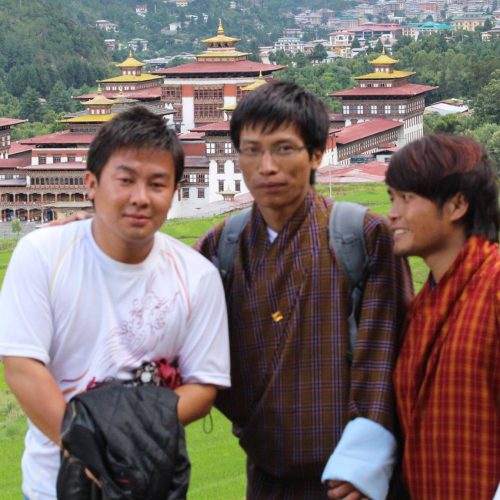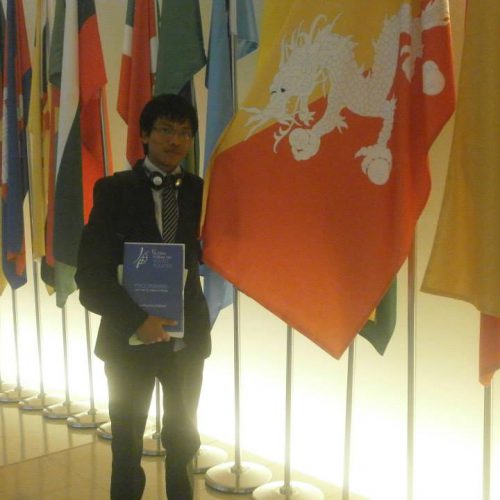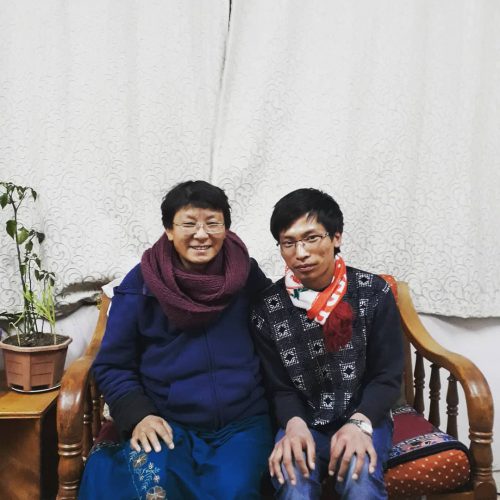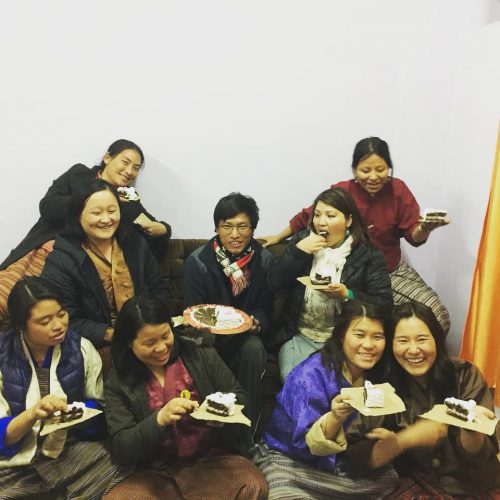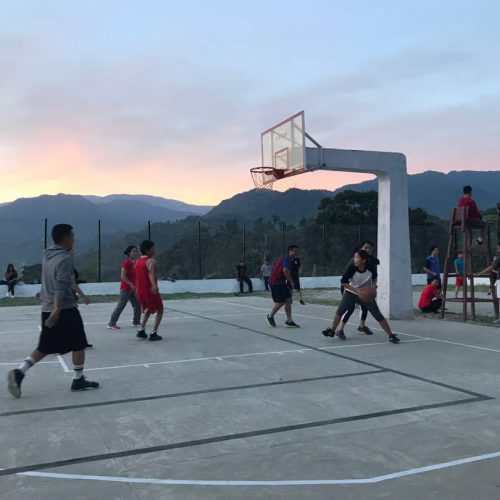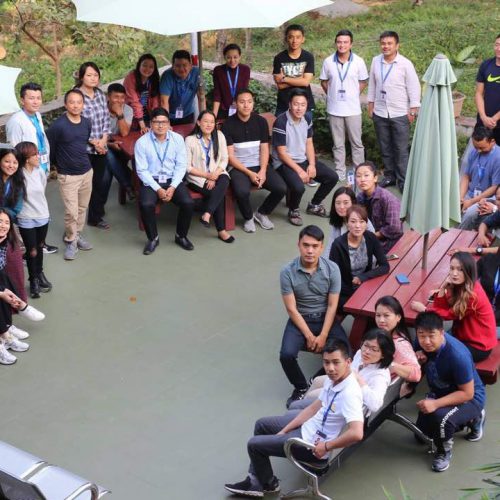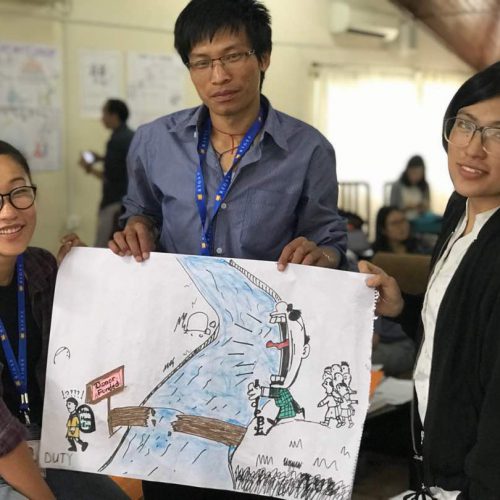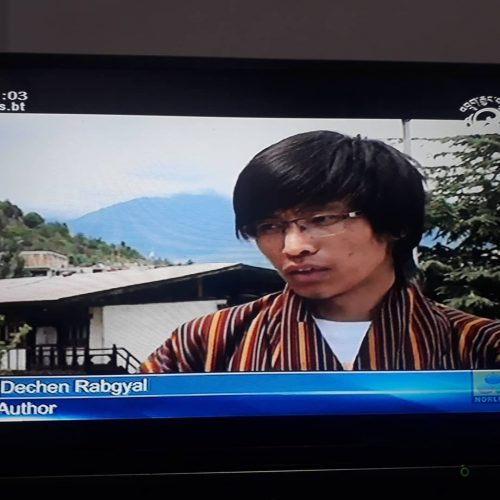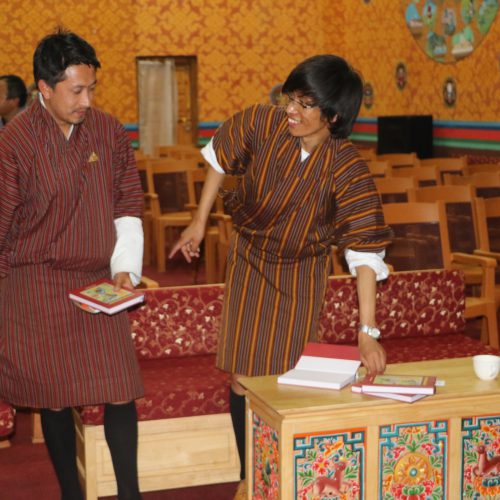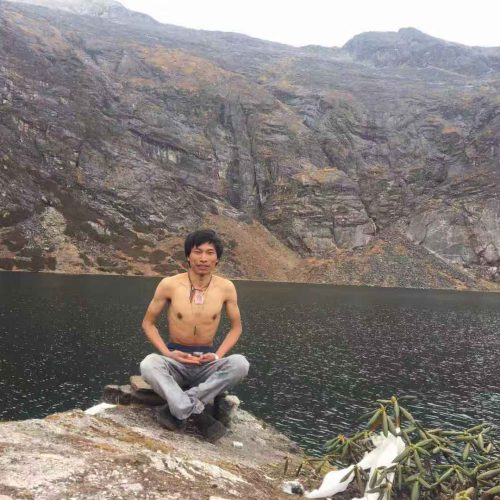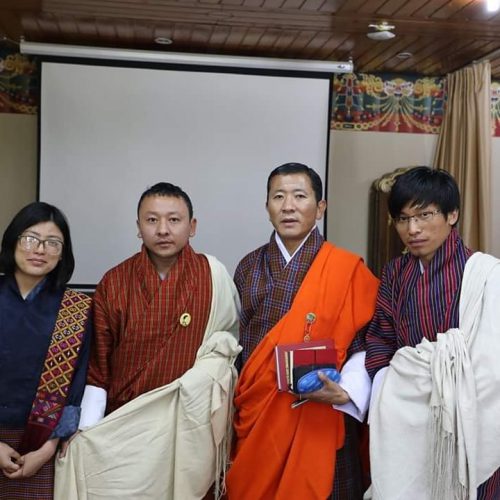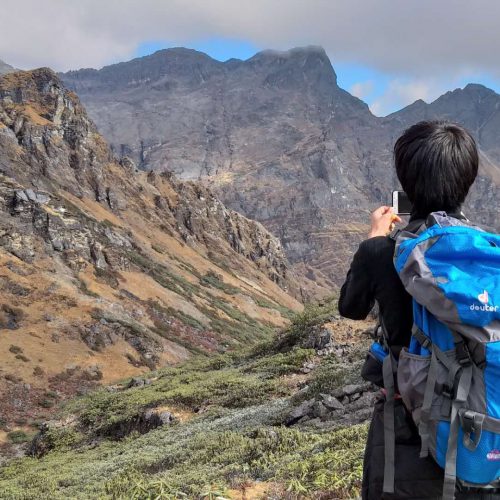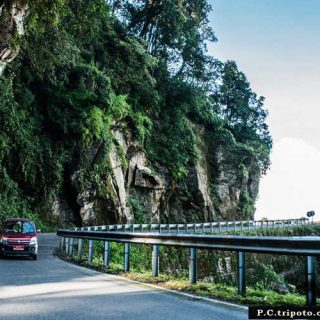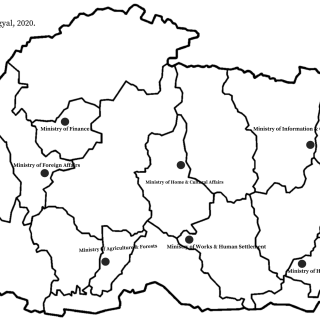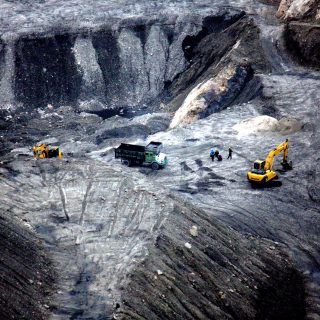Serve to Win
As 2008 commenced, I was anxiously waiting for Bhutan Higher Secondary Certificate Examination (BHSEC) results. With television, radio and mobile phone, items of luxury for a countryside settler of Drepung, Mongar, I requested Ama (mother), to buy me a weekly paper, Bhutan Times from Mongar. Since she being illiterate, I would write the name of the paper and give a date (sic.) in a piece of paper so that it helps her communicate with the distributor/agent. I did not know which shop distributed/sold. In hindsight, she must have strolled the town to get one. It was in one of the January issues where I came across the coverage on Australian Open (AO). The stage for the first grand slam of the year was set. Novak Djokovic, the world number 3 who defeated Federer, the world number 1 then, was poised to face Tsonga who had overcome Nadal, the world number 2. Bhutan Times used to do a detailed story. I don’t know why, I found myself in the neighbourhood of Djokovic’s story. One obvious reason was him being an underdog (against Federer). Why not for Tsonga?
Reading the paper, besides following my results, gave me updates on Bhutan’s democratic transition. The first cohort of National Council elections covering 15 Dzongkhag’s (Districts) were held in December. For the remaining 5 Dzongkhags, it was scheduled in January end as there were no candidates. Meanwhile, National Assembly elections were gaining momentum as the two parties reached out to the electorates. Attributable to these efforts, an illiterate mother buying a newspaper for her son who would study political science later, I was quite informed about Bhutan’s democratic transition, at least, facts and figures.
Back to Djokovic and tennis. Later, I found out that Djokovic had won the match, thus claiming his maiden grand slam title. As I knew more about him, I felt more connected to his story to an extent that I would lie to my mother to go to watch him play. In January 2011 while on vacation in the village, I learnt through a friend of mine that Djokovic has progressed to the AO final. This time, I could, at least, afford a mobile phone, but not a smart one. I couldn’t dare request mother that I want to go to Gyalposhing at aunt’s place to watch a tennis match, tennis which she hasn’t heard of even to this day. I would tell her that I have some studies related work in Gyalposhing, some 3 hours walk from my village. I would leave by Saturday evening, watch the match Sunday afternoon (Bhutan Standard Time) and return home Monday morning. That was quite a lot of time! I simply did not know how the time difference actually played out.
In subsequent years, I followed Djokovic’s matches. I saw him grunt and throw rackets. But his interviews and victory speeches were very compelling, empowering and eloquent. As he won more titles, I knew his stories, more. As the uncertainty of the COVID-19 pandemic continues in conjunction with my own story and aspirations thereof, immersing into the story of an athlete, raised in war torn Serbia, formerly Federal Republic of Yugoslavia, now on top of the world, could not be timelier. Hence, ‘Serve to Win’, to start the year!
Raised in Kopaonik, Serbia, Djokovic’s rise is exceptional. His parents owned pizza parlour which helped family’s sustenance. During one of those days when he was 4 years old, he saw Pete Sampras win Wimbledon. Unlike fellow Serbians of his time, his interest for tennis grew for which his mother would buy whiffle balls. As if it was foretold, government built a tennis academy in Kapaonik. He would stand by the fence watching coach Jelena Gencic train kids. One day, Gencic enquired him if he wanted to practice to which he agreed with excitement. By then, he already has his set of balls, rackets and bag. As the days went by, Gencic saw his potential and went on to call him a ‘golden child’.
After schools and during holidays, when his friends would go for playdates, Djokovic would go for practice. It wasn’t tennis alone. Gencic would advise him to listen to music and read poetry so that it helped in his overall growth and focus. He also learnt languages such as English, German and Italian. Obsessed with tennis, right from the young age, we would make trophies from cups and bowls. Standing in front of a mirror, he would say, “Nole is the Number One! Nole is the Champion.” The affirmation! Nole is Djokovic’s nickname.
However, his childhood and adolescence were not free of troubles. The North Atlantic Treaty Organisation’s (NATO) military operation and bombings on Yugoslavia was life threatening. Djokovic and his parents hid at his aunt’s home which had barricades for 78 straight nights. His father Srdjan borrowed money and mother Dijana cooked food during which the electricity was supplied not more than two hours a day. You could be blown away any time. The communist government did not share much information. There were only rumours. Rendered helpless, there was nothing to lose. Accepting powerlessness can be liberating. In the midst of bombings, he went for practice but with caution. Assuming that there won’t be another/second attack, he would go for practice in a place which had been attacked the previous day.
Sacrifices and struggles began to pay off. He rose in his professional ranking and more Serbians knew him. The rise, however, wasn’t swift. In 2006 Croatia Open, in the middle of the match, he fell. He faced series of breathing complications. In the quarter finals of the 2009 AO, the very tournament he won a year ago, he had to retire. Incidentally, Doctor Igor Cetojevic and his wife, Djokovic’s compatriot, followed the match on television and saw latter fall. Cetojevic knew the problem. A year later, Djokovic underwent kinesiological arm testing under Cetojevic’s instruction. Gluten was the cause of his breathing problem. It caused inflammation. Gluten is found heavily in wheat which is used for baking bread, a popular diet in Serbia. His 14-day gluten free diet saw his health improved, drastically.
In 2011, two years after the fall in Melbourne, Djokovic fell on the grass of Wimbledon, to eat grass and lift the trophy. This time the trophy he lifted was not plastic- ‘it was real’. Dreams come true! Facing Nadal in the final, Djokovic’s 43 consecutive victories of the year were dubbed as ‘statistical anomaly’ by some commentators. A challenge for an underdog. More remarkable even, in 2012 AO final, he outlasted Nadal in marathon 5 hours 53 minutes, the longest ever grand slam final. After his victory, Djokovic had ‘one square’ of chocolate from candy bar- the first time in two years.
Besides his diet, discipline helped him rise to the top. He meets his coach every day at 08:30. By then, he would have had water, undergone yoga and some business aspect of his career. Before he goes to sleep, he reads [books] and keeps his journal (diary). His team, the inner circle comprising mostly of Serbians who know his past and have similar stories surrounding the war helps in his life as a person. People (friends) are important aspect of a successful life. He also discusses mindfulness in relation to constant physical and mental preparation-14 hours a day, seven days a week. Having a positive outlook is crucially important. In that front, he argues to be objective, not cynical citing an example of how even water reacts to our thoughts and energies.
With his dietary choices central theme of the book, and the book about his professional life, he builds his story around diet. Dietary preferences affect across the board- professionals and individuals alike. He is very open. As he travels on tour, he draws insights from Chinese culture, i.e. ‘body clock’. One’s body has its own best time. Food is information. Its reactions affect one in a significant way which in some cases cause neurological impairment. As a result, it affects one’s focus and thinking. As he lives ‘gluten free, dairy free and sugar free’ life, Djokovic’s food choices are simple- vegetables, beans, white meat, fish and fruits. Having to travel frequently, he looks for hotel with kitchen. In a way, cooking gives him more time to spend together with his family and team. It also makes food cheaper. He shares four rules:
- “Eat slowly and consciously,
- Give your body clear instructions,
- Stay positive, and
- Go for quality, not quantity.”
Emphasising the importance of preparation and hard work, he shares his reflection, “The more you train, the more scenarios you experience and the fewer surprises you will have.” No surprises, he is one of the best, if not the best, returner(s) in the world of tennis. Further, he goes on to suggest that the changes one sees in oneself shouldn’t be equated as an end. Rather, it should be a means, “…don’t let the changes be your goal. Let them be your gateway to bigger, better goals.”

